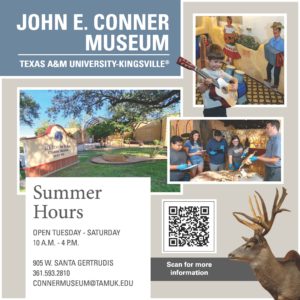In college, conducting and presenting research can be a great experience. At Texas A&M University-Kingsville (TAMUK), students were given this opportunity at the Women and Gender Studies (WGST) Fall 2018 Student Symposium on Oct. 19.
The symposium was one event of a series part of the WGST program. The symposium was hosted by The Women and Gender Studies Program, The Center for Teaching Effectiveness and The Department of Language and Literature.
Dr. Susan Roberson is the director of the WGST program at TAMUK. For her, the annual symposium is put together for a couple of reasons.
“One, to give students a chance to present their work, help professionalize students so that they understand that they are serious researchers or creative people, but also to put a focus, a lens on issues related to women and gender,” Dr. Roberson said.
The theme of the symposium was “Trends in Student Research and Creative Responses to Women and Gender Studies.” During the symposium there were four different panels; they were “Diversity in Media and the University, Gendered Responses to Conflict, Women Negotiating Gender Expectations in European History, and Women and Male Dominated Fields.”
There were 10 presentations and 16 students who presented their research. After each presentation, attendees were given the opportunity to ask questions about the research being presented.
Throughout the event, faculty and students wandered in and out of The Blue Room in Sam Fore Hall listening to the various topics being discussed. Topics ranged from representation in media and the workplace to gender’s role in history.
Amanda Yuraitis is a psychology and communications major who participated in two panels at the event. Along with group members, the research she presented was titled “Does Gender and Age Influence the Offering of Extra Credit in the Classroom?” and “The Influence of Gender-Socialization on the Basis of Moral Development in Youth.” For her, the symposium was a great opportunity.
“It was wonderful. It was interesting to see minds interested as well or even just to plant that seed of gender and its influence or impact on things that are offered in the classroom. It was definitely empowering,” Yuraitis said.
Along with student research, there was also a keynote speaker. Dalel Serda gave the keynote speech titled “Embracing the Margin: Advantages of Being the ‘Other’.” As she told the story of her family’s roots and how it affected her life, students and faculty sat and listened to her story.
“It’s an asset to see life from the perspective of disadvantage as well as advantage. It fosters a fuller perception of reality…Storytelling allows us to re-appropriate control.
“It lets us reconstruct narratives or privilege and positivity out of real perceived marginalization,” Serda said at the symposium.
Dr. Lana McDonnell is an assistant professor of communications at TAMUK. This semester she is teaching a gender and communications course.
For this class students were asked to conduct research to present at the WGST Symposium. At the symposium several of her students were given the opportunity to present their work and she enjoyed seeing her students’ presentations.
“This has made me so happy because the things students have pulled out of the classes, the things that are of interest are not things that I can expect…it’s just really motivating. It makes me really very happy to see these fully-developed people at the front of this big crowd really handling themselves, I’m really proud,” Dr.McDonnell said.
Future events organized by the WGST program include a speech by Jody Marin on Oct. 24 and a viewing of the film “The Panza Monologues” on Oct. 25.

